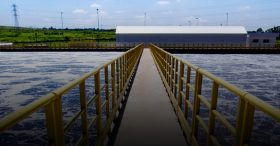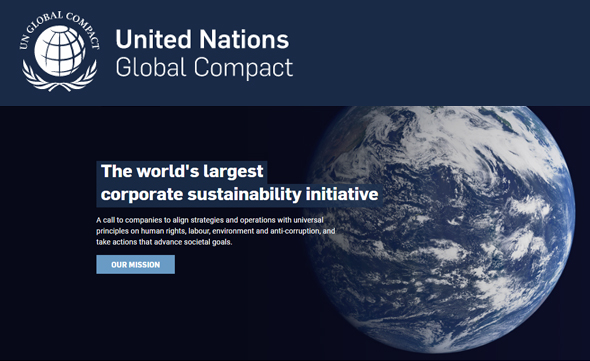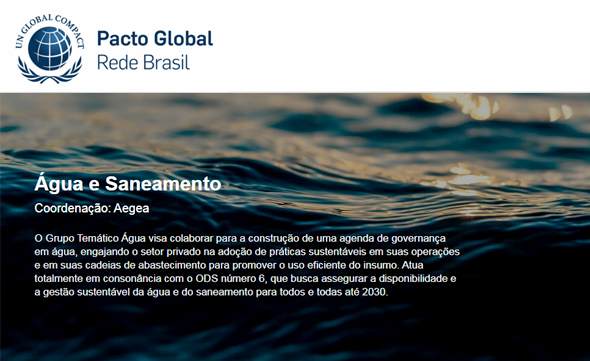PILLARS OF ACTION
ECONOMIC
- Creation of value for all links in its chain;
- Continuous and sustainable improvement of its processes;
- Constant pursuit of innovative solutions;
- Transparency and responsibility in disclosure of information
ENVIRONMENT
- Prevention of pollution and environmental protection actions;
- Management of aspects and impacts connected to its operations;
- Continuous pursuit of energy efficiency;
- Sustainable use of natural resources, especially water;
- Minimize losses along its processes, reduction of waste generation and reuse water;
- Continuous improvement of environmental performance.
SOCIAL
- Prevention of employee injuries and illnesses by managing hazards and analyzing risks;
- Continuous improvement of performance in health and safety;
- Legal, ethical and transparent behavior with stakeholders;
- Human development of the communities where we operate;
- Promotion of human rights: Combating corruption, child labor, moral and sexual harassment and forced or compulsory labor;
- Prevention of all forms of discrimination and respect for diversity.
Top management is committed to the continuous and effective improvement of its Management System, promoting the inclusion of these guidelines in its strategic goals and processes, constantly performing critical analyses of its performance.
By investing in our employees and in neighboring communities, acting responsibly, preserving the environment and delivering innovative solutions for the people in the regions where we operate, we develop our business in a sustainable manner, always contributing to the improvement of health and quality of life of millions.
GLOBAL SUSTAINABILITY COMMITMENT

We understand that our efforts go beyond sanitation. We seek continuous improvement in the quality of life of people in cities where we operate.
From governance to operation, the commitment to Sustainable Development Goals (SDGs) underpins Aegea’s operations and extends to suppliers, users, communities and all stakeholders of the group.
Besides developing the infrastructure to provide universal basic sanitation services in the country, we aim to mitigate the negative environmental impact, reduce water losses and, consequently, energy consumption. We implement actions focused on reducing water losses in the 57 towns where we operate, using integrated and specific systems that monitor water, in real time and remotely, from the treatment plant until reaching the end user. Our management model actively seeks to avoid waste or any kind of interruptions in the supply system.
We also look directly at the communities in the cities where we operate and implement social and environmental programs around our concessions. We invest in initiatives focused on environmental education and democratization of information to access to treated water and sewage – which is evidence of some of our institutional values such as accessibility, collaboration and social responsibility.
One of our flagship programs in this regard is “Saúde Nota 10”, which shows children the importance of treated water and sewage in preserving the environment and the health of the population. Through lectures and educational materials specifically designed for the program, students get to know the subject and understand the importance of sanitation services.
Beyond its focus on operating cleanly, efficiently and close to the population, Aegea is aligned with major global sustainability agenda, using its business to collaborate with the targets of the post-2015 agenda and helping to improve the HDI in the cities where it operates:
Underscoring our commitment to the principles of transparency, fairness, accountability and corporate responsibility, we also publish our Annual Sustainability Report containing information regarding our operational, financial and social and environmental performance.
Our Sustainability Report is based on the guidelines of the Global Reporting Initiative (GRI) Standards: Core option – first exercise in adapting to the new format, replacing the G4 version. It also follows the criteria set by the Brazilian Association of Publicly Held Companies (Abrasca), International Integrated Reporting Council (IIRC) guidelines and the principles of the UN Global Compact, to which we are signatories. The financial data were verified by an external audit company and others were internally validated by our Management.
HEALTH, SAFETY AND ENVIRONMENT
Committed to the health and safety of employees and third parties, Aegea adopts an intensive approach to Health, Occupational Safety and Environment, which includes the establishment of corporate guidelines for all operations. Efforts are focused on strengthening the management policies on these topics, in line with the regulatory standards established by the Ministry of Labor and Employment (MTE) and internationally recognized standards (such as those of Occupational Safety and Health Administration – OSHA and IFC Performance Standards), so that it is possible to measure the performance of the units.
The procedures for disclosure, investigation and adoption of corrective actions for accidents and near accidents were also standardized and a management system deployed, with key performance indicators (KPI) of safety. In all, there are 59 guidelines that encompass environmental, occupational medicine, safety and social responsibility activities. With the standardization of the process of investigation and classification of accidents, the reactive and proactive performance indicators were formatted.
To standardize procedures across all concessions, the Interage Program was created to establish in all operations, the standardization of procedures focused on defending environmental and occupational safety policies, while also ensuring healthier and safer workplaces. The initiative respects already existing practices at the units and recommends new processes that can ensure results in compliance with all the legal requirements applicable to the system. There are 59 documented procedures, including Normative Instructions, Organizational Guidelines and Operational Procedures, covering environmental, medicine/health, safety, Environment, Health and Safety (EHS) and social activities. Besides improving the performance of each area involved, Interage ensures the best practices to comply with the EHS laws across all business units, both those already established and new concessions.
More than merely institutionalizing procedures, Aegea works to disseminate the culture of safety. Meetings are held with top leadership on excellence in management of Environment, Health and Safety and the Zero Accidents target. Pursuant to labor laws, all concessions also have Internal Accident Prevention Committees and teams for Specialized Services in Occupational Health and Safety Engineering (SESMT). Commissions are formed by representatives directly appointed by the employer and, through secret ballot, by employees. Thus, all own employees are represented in formal health and safety committees. Though CIPAs and SESMT are sized according to the number of employees in each concession, the provision of services includes other contractors and third parties.
Following the Environmental Risk Prevention Program (PPRA), exposure of workers to health risks was identified, evaluated and recognized and, control measures were implemented. The most important risk is associated with the maintenance of the sewage system and the sewage treatment plant, in which there is exposure to biological agents. Control measures include supply of personal protection equipment (gloves, safety glasses, waterproof sets, among others), as well as training programs and inspections to verify employee compliance with the required safety procedures.
See Too

Aegea seeks to ensure the highest level of transparency and ethics in its operations.

Contact Aegea to clarify doubts or request more information about the company.

Contact Aegea to clarify doubts or request more information about the company.

Learn more about Aegea, one of the largest private sanitation companies in Brazil.





